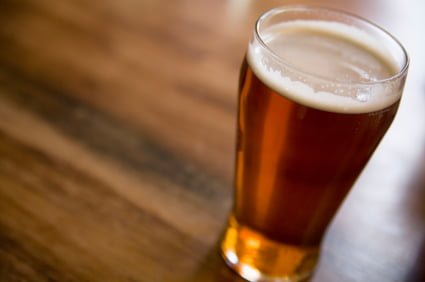
Blame it on the alcohol – or the genes? Scientists believe they have identified a gene that plays a role in regulating how much alcohol people drink.
In a study of over 47,000 people, researchers observed a common genetic variation was associated with lower levels of alcohol consumption.
The gene, called autism susceptibility candidate 2, or AUTS2, is most active in the parts of the brain that deal with reward mechanisms, which may indicate that it plays a part in regulating the positive reinforcement people feel when they drink alcohol.
The AUTS2 gene has two variations, with one that expresses itself three times as much as the other. People with the less common version of the gene drink on average five percent less alcohol than people with the more common version.
AUTS2 has previously been linked to autism and attention deficit hyperactivity disorder, but its exact function is not known.
The study was conducted by an international consortium led by scientists at Imperial College London and King’s College London. The scientists collected DNA samples from all the participants and had them fill out a questionnaire about their alcohol consumption.
They hope their findings will lead to a better understanding of the mechanisms behind alcohol consumption and the development of individually targeted prevention and treatments for alcohol abuse and addiction.
Until now, only one other gene had been shown to have an effect on alcohol consumption – the gene encoding alcohol dehydrogenase, an enzyme that breaks down alcohol in the liver.
The study was published Proceedings of the National Academy of Sciences.
